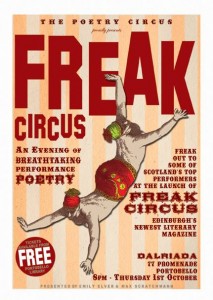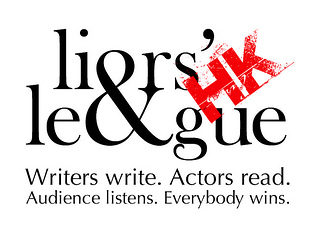C. and I had a chat about one of the pieces I read at Illicit Ink earlier in the year. He said he thought it worked better as a spoken piece than a written one but couldn’t tell me why. I asked if it was because that it was in the first person. It has very little personal information about the narrator except that she has breasts and wears a bra. When I am on stage reading it, I become that woman – the first person is automatically my person – so the audience knows what she looks like, how old she is, where she’s from. None of that information is in the story. Many of my first-person pieces leave social context out: they are not about what I consider to be gender-, age- or class-specific experiences so that info feels redundant.
An early story of mine, and one of my personal favourites, Neon Tetra Suicides, didn’t originally specify the gender of the narrator. In my head, he was a man, but it didn’t matter to the story. It was about someone staying at friends’ while their flat was empty. What happened didn’t depend on the narrator’s age, class, nationality, race, sexuality or gender*. After reading an editor’s blog which said something along the lines of ‘Don’t send me a story where the narrator is ambiguous or doesn’t have a name’ I added gender indicators. My guy turned into a woman. Well, he turned into someone who goes to business meetings in skirts and tights. There’s still no name but we assume gender from the clothing. (Even with gender indications, Neon Tetras doesn’t sell so uncertainty about who the narrator is obviously isn’t its only problem. But that’s another story.)
“But why should that matter?” C. asked me after I suggested that the lack of biographical content was why he preferred Mouth spoken. And that’s the question. I don’t know why, but I know that it does. Last December, I had a 100-word first-person story published online and in the comments one reader asked if the narrator was a man or a woman. For 100 words I didn’t think the gender mattered: either sex can milk cows and chop up frozen zombies with a chain saw. That’s just country living. But my audience clearly did think it was important.
I was asked to change the gender of Mouth‘s narrator for Liar’s League Hong Kong. It took very little effort. I changed a breast to a nipple, a top to a shirt and removed a reference to bras. The gender of the narrator can’t have been that important to the core of the story if that was all it took. For the performance it makes all the difference, however: it was read by a man and that man embodies the narrator.
Unfortunately, I can’t think of any short first-person stories that I have read where I didn’t know basic biographical information about the narrator so I can’t tell whether I, too, want to know these things. That same fact makes me think that I do or more writers would leave them out. My perspective isn’t that of a pepper corn in a salt cellar: I’m not a uniquely socially blind individual. If I don’t think it’s necessary in the stories I write, that’s probably because I already know. I have an image in my head, one clear enough to satisfy my needs for detail. I need to remember to share that image, no matter how sketchy, with my audience. I don’t want to lose them to unnecessary questions.
* Saying that, there are some indications of age – the friends have children – and class – the narrator attends business meetings and mostly works from home on a laptop.

